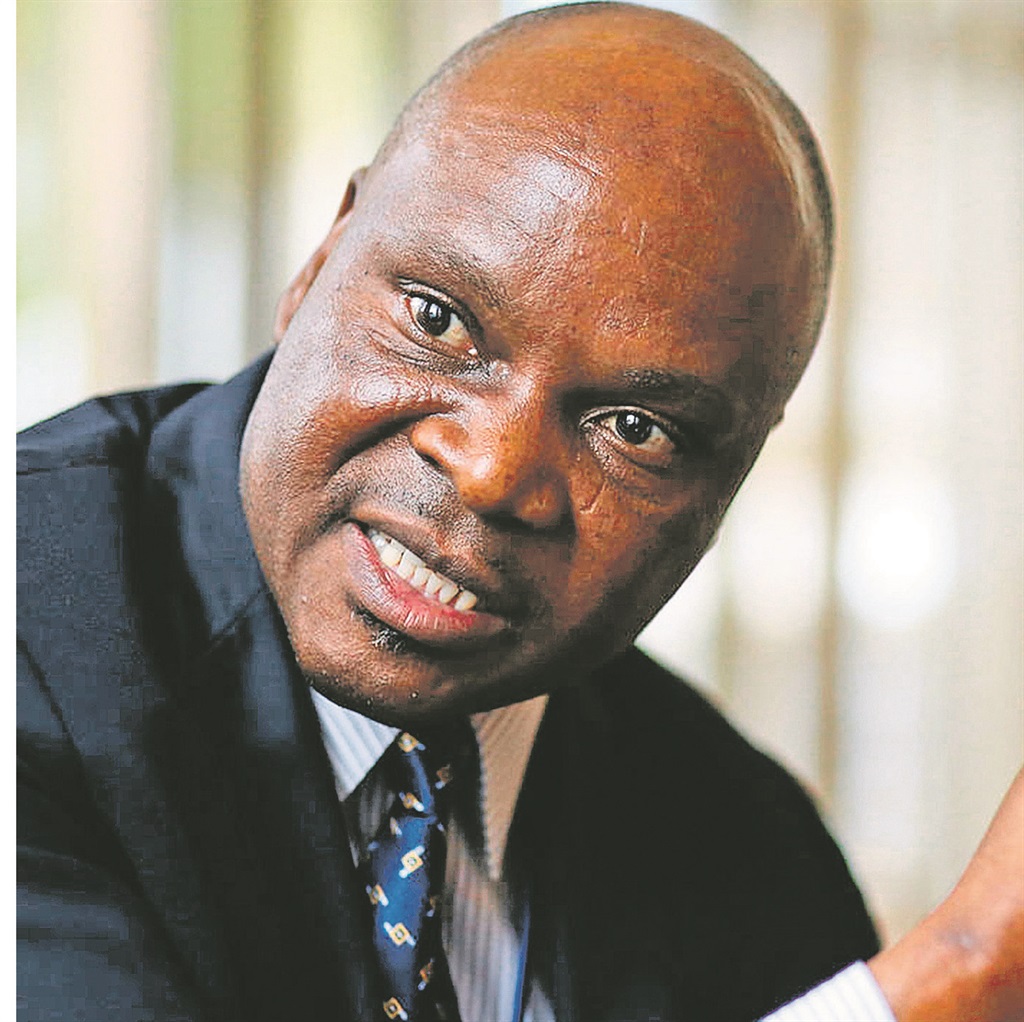
It was around midnight on February 23 – according to the police report – when the power was cut, plunging Mbada Diamonds in Chiadzwa, Zimbabwe, into darkness.
In the “complete blackout” that followed, intruders broke into the high-security red zone and targeted the secure drop boxes where the uncut diamonds were stored.
“They used an iron bar, and broke the padlock and seal, to gain access to the ... box,” says a police report.
The previous day, Zimbabwe’s minister of mines, Walter Chidhakwa, had halted all diamond mining in the Marange diamond fields, and police moved in to evict foreign mining companies.
Mbada Diamonds, partly owned by South African scrap-metal company Reclamation Holdings, and indirectly Old Mutual, was one of the mines targeted.
There are vastly differing versions of what happened. Police say they faced “running battles” with “illegal panners” who appear to have been aided and abetted by mine employees.
But David Kassel, the chairman of both Reclamation Holdings and the company’s diamond mining subsidiary Grandwell Holdings, claims that terrified employees were rounded up by police and threatened while hundreds of illegal panners invaded the concession area, stealing everything from diamond-bearing ore to metal roofs and generator batteries.
“The police arrived ... and told all of our people to get off the mine. In the middle of production, they just stopped everything,” says Kassel.
The chaos that ensued over the next few days ended the relative calm that has prevailed in Marange since the army’s brutal crackdown on the diamond fields in 2008.
It has also launched a vicious court battle, pitting Grandwell against the government of Zimbabwe, their 50% partner in Mbada.
In the Harare High Court in March, Justice Joseph Mafusire described it as the breakdown of a commercial marriage.
“The marriage endured for six or seven years. Mbada was happily mining. But apparently the government was brooding ... The government felt its partners were being unfaithful,” he said.
During a televised birthday speech two months ago, President Robert Mugabe openly accused Marange’s foreign mining companies of looting.
“We have not received much from the diamond industry at all. I don’t think we have exceeded $2 billion, yet we think more than $15 billion has been earned,” he reportedly said. “Lots of smuggling and swindling has taken place and the companies that have been mining, I want to say robbed us of our wealth ... That is why we decided that this area should be a monopoly area and only the state should be able to do the mining in that area.”
Starting in March 2015, the Zimbabwean government, which already holds a 50% stake in all diamond mining companies, announced plans to consolidate all foreign-owned companies into a single company.
The plan came with an implied threat. “Deciding not to participate means complete termination of relationships,” Minister Chidhakwa warned. “The company may never be allowed to participate in diamond mining in Zimbabwe again in future.”
Court records show that negotiations over the consolidation were ongoing until February when Chidhakwa blindsided the foreign mining companies, calling a press conference to reveal that their permits had expired. He told the mines they had 90 days to pack up their equipment and leave.
“It’s nationalisation,” Kassel says. “No matter what they like or don’t like to call it, that’s what it is ... You want to take an asset that belongs to a foreign company and expropriate it for no return.”
When City Press arrived at Reclamation’s Illovo office, Kassel was at his desk surrounded by a wall of screens that use to provide a live video feed of Mbada’s operations in eastern Zimbabwe.
“At no time did we say we are anti the consolidation,” Kassel said. “We said we’re positive about it, we’ve got open minds about it. However, it has to be worked out.”
One of the issues is how to value each mine’s stake in the future consolidated company. Grandwell, who claims to have spent $40 million on exploration, wants to be valued on “proven, probable and possible reserves”, whereas the government says the diamonds in the ground belong to the country.
As part of an urgent interdict application filed in February, Kassel warned that the government’s “unlawful scheme ... will inevitably signal the demise of the entire diamond mining industry in Zimbabwe with disastrous further impact on the already devastated economy”.
Last week, Zimbabwe’s vice-president, Emmerson Mnangagwa, announced that the government had launched an audit of all seven diamond mining companies in Marange to determine whether diamond revenue had gone missing.
Kassel says they have never been directly confronted with claims that they skimmed off diamond revenue, and in court papers claimed that since Mbada started mining in 2009, they have paid over $472 million to Zimbabwe’s fiscus.
Despite this, Kassel claims that Grandwell has made “not a cent” for roughly the past two years from their diamond mining operations.
When City Press asked to see Grandwell’s financials as proof, Kassel threatened to walk out of the interview: “Let us just put things on the right footing. If you in any way question what I say to you as being unfactual, I will end this interview now,” he said.
Grandwell’s legal team has been keen to paint their fight as a David-and-Goliath battle, with Kassel being the only person willing to stand up to Mugabe. But court records suggest the story is not quite so simple.
Eyebrows were raised in 2009 when Grandwell was granted permission to mine a 1 000-hectare concession in Marange. Not only did the company have little experience in mining – Reclamation’s main business is scrap metal – but the company was granted a mining right in perpetuity, despite the law requiring special grants to come with an expiry date.
As part of the 50-50 joint venture, the government-owned Marange Resources agreed to take responsibility for securing and maintaining the necessary mining permits – which they failed to do.
Court papers the minister filed show that, for the most part, Marange Resources only obtained prospecting rights, and most of these expired in 2013 after they failed to pay the necessary licence fees.
Asked whether, as the operational arm of the company, Grandwell ever checked whether the necessary mining permits were in place, Reclamation’s legal adviser, Graham Wolf, said they had “relied on the contractual covenants given by Marange and guaranteed by ZMDC [the Zimbabwe Mining Development Corporation], as well as the fact that the chairman of Mbada was a government appointee”.
The one exception, on which Grandwell is pinning its hopes, is Special Grant 5244, which was issued in perpetuity.
“The word there is in perpetuity – it doesn’t say for one year, for two years; it says in perpetuity. Because when people invest a major amount of money, they want to know that their tenure is secure,” Kassel says.
However, the minister argued in court papers that the issuing of an open-ended licence, even by members of his own government, was illegal.
The general manager of the ZMDC, Sydney Simango, echoed this in his own court papers when he told Grandwell not to rely on promises the ZMDC had themselves made. “It is accordingly misguided of [Grandwell] to place reliance on warranties or representations ... which run foul to the law of the land.”
Following an urgent court application in February, the courts instructed the government to allow Grandwell to return to the mine.
When Marange Resources CEO Mark Mabhudhu ignored the court order, Justice Mafusire reacted angrily, saying in his ruling that is was clear Mabhudhu “would not take orders from any one, including the court, unless and until his minister had instructed him to do so”.
The government is appealing the judgment, but for now Grandwell’s security has been allowed to retake possession of the mine, but they cannot mine until they obtain proper mining rights.
Grandwell has launched a second court application to try to force the minister to reinstate their mining permits.
Justice Mafusire, who acknowledged he “must sound like a broken record”, warned both sides to respect the rule of law.
“This is paramount. It is a tenet the courts will defend to the last judge standing. The alternative is anarchy,” he said.




 Publications
Publications
 Partners
Partners








